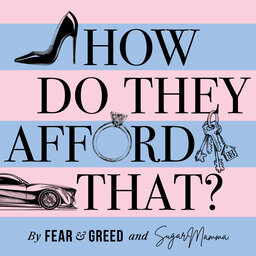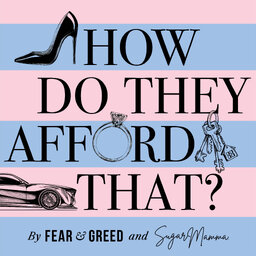Twelve goals for 2025
Looking for a New Year's resolution? Look no further. Join Canna Campbell - a financial planner for 20 years - and Fear & Greed's Michael Thompson as they put together 12 financial goals for 2025 to help you take charge of your money.
The information in this podcast is general in nature and does not take into account your personal circumstances, financial needs or objectives. Before acting on any information, you should consider the appropriateness of it and the relevant product having regard to your objectives, financial situation and needs. In particular, you should seek independent financial advice and read the relevant Product Disclosure Statement or other offer document prior to acquiring any financial product.
Canna Campbell is a Corporate Authorised Representative and Corporate Credit Representative of Wealthstream Financial Group Pty Ltd ABN 35 152 803 113 Australian Financial Services Licensee AFSL 412079.
In 1 playlist(s)
How Do They Afford That?
How Do They Afford That: the podcast that peeks into the financial lives of everyday Australians. Ev…Social links
Follow podcast
Recent clips

Your money bounce-back plan
21:28

Six financial goals for 2026
26:19

FIRE 2.0: more 'Financial Independence', less 'Retire Early'
24:46
 How Do They Afford That?
How Do They Afford That?